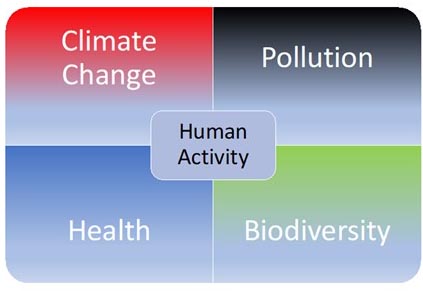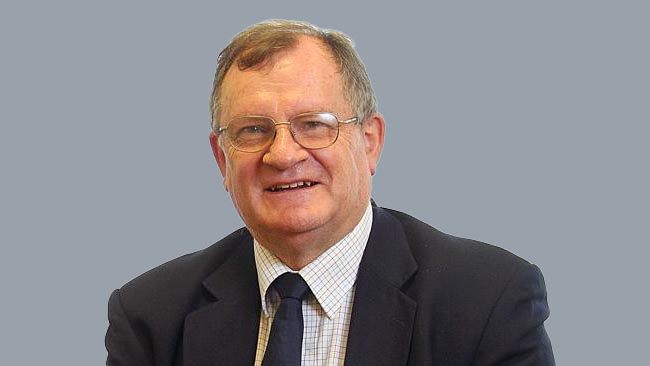Climate Change and Health: Australia in the Anthropocene
By Professor Finlay Macrae
The impact of humanity on the planet is now so profound that it has been suggested that we have entered a new geological epoch, the Anthropocene, an epoch characterised by the dominance of humans and the destruction of the natural environment.

As a species we have thrived. We are living longer, poverty levels in many parts of the world are decreasing, we have conquered many diseases. However, these achievements have been at a terrible cost. We have overexploited the earth’s resources. There will be significant adverse consequences for humanity, and all other life on the earth, unless we take urgent action to alter course.

Department of Medicine, and Head of Colorectal Medicine and Genetics,
Royal Melbourne Hospital)
Human activity has led to an increase in mean global temperature of nearly 1°C compared to preindustrial levels. That is a very significant rise given that mean global temperature is approximately 13°C. If global temperature rises to 4-5°C many experts believe that the existence of humanity, and much other life on the planet, is threatened.
Scientific consensus is that the rise in global temperature is primarily due to the increased concentration of greenhouse gases in the atmosphere and that this temperature rise is profoundly changing climate and weather. Climate change is manifested not only by increased temperature but also by changes in rainfall, the number and severity of extreme weather events, and alterations in ocean temperature and chemistry.
Many of the processes which generate greenhouse gases also generate pollution. The combined impact of climate change and pollution is adversely affecting human health but it is also impacting environmental health as evidenced by species extinction and decreased biodiversity.
What can our Faculty do? There are many things that can be done at personal, hospital, departmental, faculty, electorate, state and federal levels as well as professional national and international linkages. Already in the last few months there has been clearly more engagement in the challenge. The University has listed the wide efforts they are implementing to respect the effects of climate change.
At RMH, there is a concerted effort to manage waste more efficiently, including from theatres (think PPE, single use accessories and equipment), for the protection of the environment, and much attention to energy saving measures. Paperless processes in hospital departments are now accepted, but with electronic medical records sometimes a mixed blessing (I cringe when a necessary "print" button teems out reams of material not relevant to the issue at hand). Politicians of all persuasions now have climate change as important political agendas, though their solutions vary – all are needed! We as citizens should take every opportunity to support the balanced activists, including through funding campaigns. Importantly, we should all join the movement to have climate change a standard item on all our professional national and international meetings, addressing the effects of climate change on the sub-specialist health of our patients across all disciplines. Collectively, all these efforts will have an impact.
Finlay Macrae AO (University of Melbourne Department of Medicine, and Head of Colorectal Medicine and Genetics, Royal Melbourne Hospital)
Desmond Leddin (Adjunct Professor of Medicine (Gastroenterology) Dalhousie University, Canada).